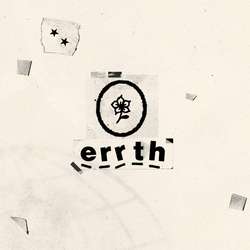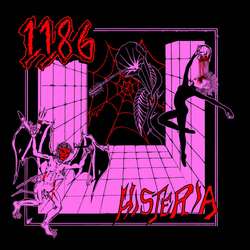The Frames are five Dubliners, with a handful of releases already. They use a variety of instruments, ranging from piano to horns and strings, effects, concepts and atmospheric layers shaping their music around human emotion often similar to that of Radiohead and Coldplay. The Frames is: Glen Hansard (Vocals/Guitar), Colm MacConlomaire (Violin/Keyboard/Vocals), Joseph Doyle (Bass/Vocals), Robert Bochnik (Guitar), and Johnny Boyle (Drums). Quickly evolving from just a cult act from Ireland, The Frames seem be gaining quite a following and a little success.
After having already dealt with major labels, which only resulted in bitter relationships, The Frames found home in 2004 at Anti Records alongside better known labelmates like Nick Cave and Tom Waites, releasing their latest album Burn the Maps.
To tell the truth, from all the press that I've been reading, I didn't expect much when I first picked up this album. It was getting credit from major newspapers, magazines and other pretty well known artists. That can't be bad, right? To me it was just screaming hype: a band with four studio albums already; dealings with major labels and recent press from mainstream newspapers and magazines. The media are always talking about some new band who in turn usually end up being just as shitty as the last one they were shouting about, but behind all my skepticism I was somewhat surprised.
"Burn the Maps" opens with "Happy", an orchestrated song that starts off with soft and sweet background vocals. Hansard's, MacConlomaire's and Doyles' vocals vary from soft, quiet, nervous, deep, and loud. Pinpointing their sound as somewhere between Pall Jenkins (Black Heart Procession) and Thom Yorke (Radiohead) would be a rough description. The song gradually picks up towards the end adding a layer of string instruments and watery effects.
"Finally" begins angrily with nervous vocal swings, aggressive guitar and rolling drums, then starts to pick up energy, but nothing you can really hold on to for long. It's hard to ignore Hansard's vocals as he begins to get a little over the top in this song. As he sings louder he starts to sound like the ever-so-annoying Chris Cornell of Audioslave, which really turned me off some of the next songs. Not only that, but they just end up being weak fillers anyways, nothing really grabs you in the streak of songs.
I was gradually starting to lose interest but "Sideways Down" popped my head up for a second, and I found myself enjoying the song. I was crossing my fingers for this one, I knew from previous songs this had the potential for the vocals to ruin it, but they didn't and I was quite surprised by this song. It's actually a really good song, and started wondering why there weren't more like it. Unfortunately, following that, "Underglass" is just another one to forget about, but "Ship Caught In the Bay" caught my attention again, as did the rest of the songs all the way through to the closer "Locusts". "Ship Caught In the Bay" is a pleasant folk song with the feeling that you're sailing on a sunny day in the ocean. It features simple catchy little bass lines, drowned out acoustic and a small bongo drum, and at about three minutes into the song some atmospheric effects and tight snare hits come in, adding a surprising but nice touch to it.
I like Boyles' drumming throughout this album; some weak spots seen in the fills but he tends to stay away from just the fundamentals, instead utilizing his set well with quick breaks all the way to a variety of time signatures, keeping it interesting and not repetitive, like in "Keepsake" which is a progression of haunting guitars, steady drumming and soft strings building up to a sonic distortion coming together in a gloomy psychedelic feeling. "Suffer in Silence" is another relaxing song reminiscent of Pink Floyd's Dark Side of the Moon. It's got an old dark western feeling, with a classic feel to it.
I have mixed feelings about this album. My first impression is that it's an album that is quite inconsistent. It tends to sound like a transition from an independent sound to the popular music sound. A lot of the songs are structured around the same pattern, and thus the songs become repetitive. It starts off well, evolves poorly, and ends strongly. When the Cornell-esque vocals barge in, it tends to ruin a lot of the songs. However, when Hansard sings softly, it's done really well, like in all the closing tracks, and I wish I could've heard more of that.
I think I'd like this album more if the vocals were toned down a bit, more variation in the songs, and more of the dreamy landscapes like "Ship Caught In the Bay", "Keepsake" and "Suffer in Silence". If the Frames lean more towards their sleepier standouts I think they'll actually have something going for them in the future.



